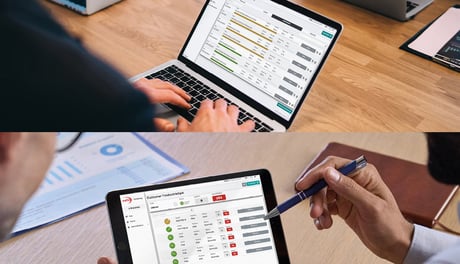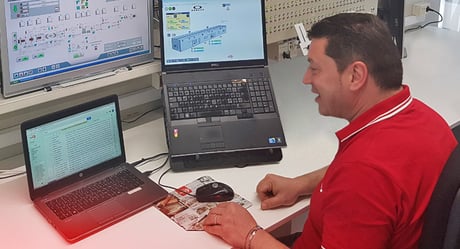Decorative appeal and functional performance
Fibre cement painting and finishing solutions are designed to enhance this material on multiple levels.
On one side, there is the decorative aspect, aimed at improving surface aesthetics. On the other, the functional or structural performance is essential.
Companies working with these materials must strike the right balance between the two, prioritising certain characteristics depending on the end use of the product. While decorative properties relate to visual appeal, functional features become critical when fibre cement cladding is exposed to outdoor environments.
In some cases, a perfect balance is needed between both requirements. Luckily, advanced finishing solutions now offer this possibility, refining the visual appearance of fibre cement to the point of making it ideal also for high-end indoor decorative projects. Thanks to its durability and versatility, decorative fibre cement is also gaining popularity for architectural components in residential, commercial and professional settings.
Download the white paper "Everything You Need to Know About Fibre Cement Finishing Technologies" to explore key benefits and methods.
Or watch the video to learn more about Cefla Finishing solutions for fiber cement:
Fibre cement finishing technology to enhance surfaces
What are the best processing methods to enhance fibre cement surfaces?
There are several finishing technologies and machines available for fibre cement, ranging from curtain, spray and roller coating, to industrial digital printing for high-definition, customised designs.
Regardless of the technique used, reliability and innovation in machinery are vital. Cefla Finishing’s fibre cement painting solutions aim to ensure top performance and quality, distinguished by operational excellence at every stage.
How? With roller coating systems that apply products simultaneously to both sides of a panel; with automated spray systems that reduce manual intervention; or with platforms featuring production tracking software and remote control of process parameters—all from a single line point.
The result is a high-performance finishing process that not only boosts productivity but also delivers beautifully treated surfaces—visually appealing and pleasant to the touch. Perfect for architectural projects that call for refined, designer finishes.
Let’s explore how decorative fibre cement for interiors and fibre cement cladding for exteriors help manufacturers produce walls and façades that combine beauty with long-lasting resistance.

In which sectors are fibre cement finishing solutions used?
Sectors
Application fields
Examples of products that can be processed on our finishing lines
APPLICATIONS

Corrugated roof panels and sheets

Flat roof tiles and slates

Tiles and coverings

External wall covering

Pre-painted sheet
Decorative fibre cement cladding for exteriors
Decorative fibre cement cladding for exteriors is a cutting-edge approach to modern architecture. These products combine top-quality finishes with outstanding weather resistance.
The arrival of next-generation digital printing technologies is revolutionising fibre cement finishing with unprecedented levels of customisation.
Meanwhile, protective coatings preserve the visual effects applied to exterior cladding—ensuring colours remain vibrant, protected from fading, moisture and UV damage.
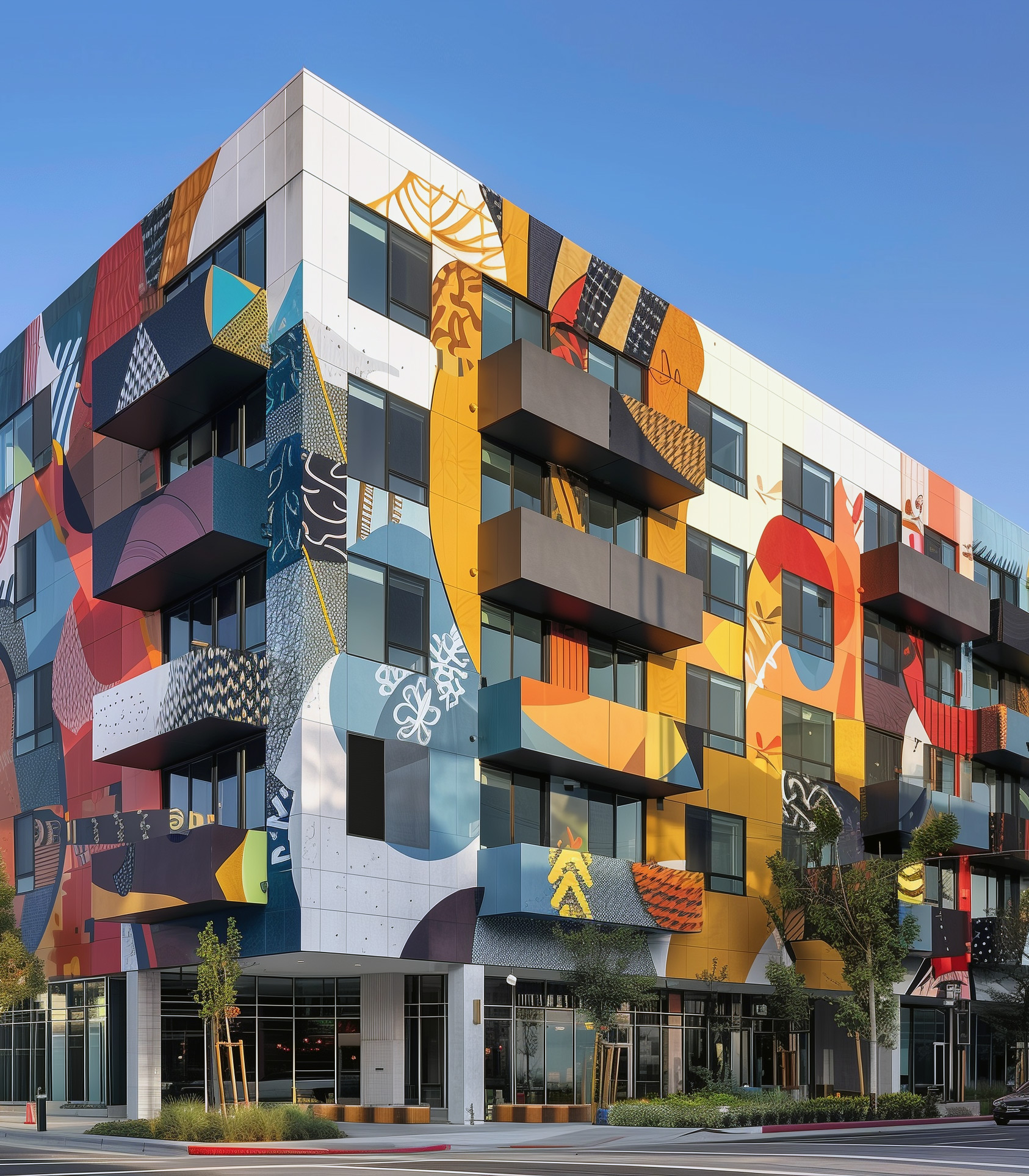
Decorative fibre cement for interior spaces
IAn increasing number of architects and designers are choosing decorative fibre cement as an ideal solution for interior walls and ceilings. It’s a versatile material that balances beauty and durability.
Fibre cement can be finished in a wide range of textures and colours, easily integrating with any décor, whether modern or traditional.
The finishing options are almost endless. Smooth, brushed or textured surfaces can mimic natural materials such as wood or stone. As noted, digital printing techniques also enable the creation of unique patterns and designs.
Its natural resistance to humidity, fire and pests ensures the long-term durability of interiors. Walls and ceilings maintain their bespoke appearance without compromising structural integrity, even in exposed environments.
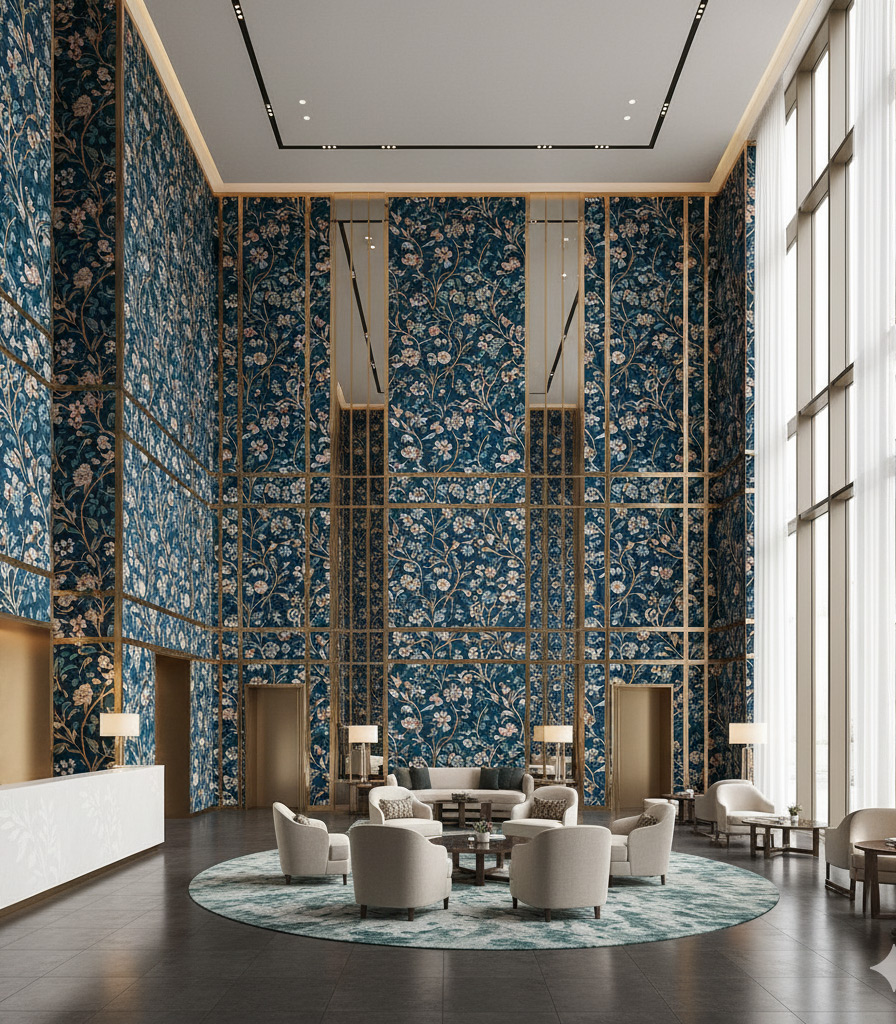
WHITE PAPER
Bring fibre cement to life with innovative finishes and decorations
Discover the technologies that make the difference.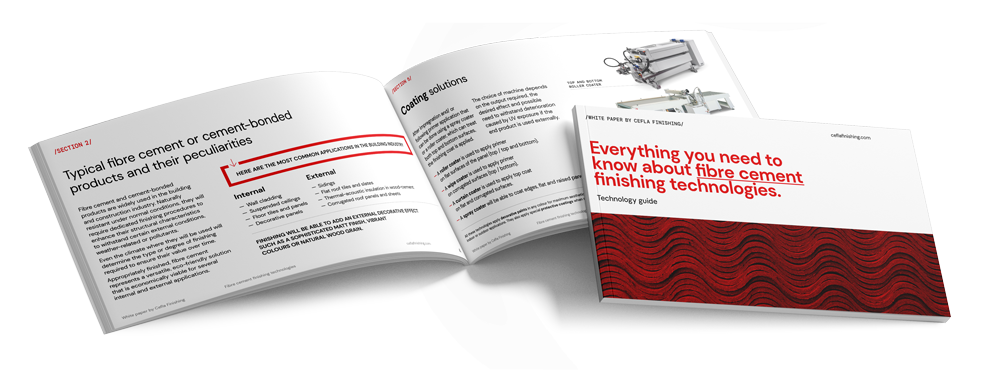
Eco-friendly fibre cement cladding
Fibre cement cladding marks real progress in the field of sustainable construction materials.
Incorporating eco-friendly components such as recycled cellulose fibres and natural aggregates, these panels help reduce carbon footprint without compromising strength or longevity.
Advanced finishing technologies—such as low-VOC paints and coatings—further enhance material resistance while reducing harmful emissions.
Optimised cutting processes and recovery of overspray along the line contribute to reducing waste during production and installation, improving the environmental sustainability of fibre cement products across their entire life cycle.
Fibre cement finishing to enhance structural properties
Let’s dive deeper into finishing technologies used for more demanding exterior applications. The main objective here is to enhance the structural integrity and resistance of fibre cement and cement-based aggregates.
It is essential to increase strength and durability in relation to the environmental conditions these products will face.
Cefla Finishing delivers complete lines for processing fibre cement or cement-based materials—from impregnation to priming to surface finishing.
Each line or individual machine is custom-configured and can integrate with third-party hardware.
Cefla Finishing equipment for fibre cement is specifically designed to flexibly meet any need, even the most challenging.
This includes guaranteeing the quality of primers and constantly refining application techniques to ensure deep penetration across all types of substrate.
Our goal is to provide automated application machines that preserve the aesthetic and functional properties of the finished product over time—even under extreme weather conditions.
Cefla Finishing: advanced technologies for decorative fibre cement
Cefla Finishing focuses on researching and applying technologies and materials that lead to more effective and longer-lasting fibre cement cladding.
Enhancing durability doesn’t just mean protecting surfaces against efflorescence, mould or rot. It also means making sure your product stands up to:
- hail
• extreme temperature changes
• vandalism
• chemical aggression
• UV radiation
• pollution
Higher performance reduces the need for maintenance and increases the durability of fibre cement products and cement-based aggregates. Cefla Finishing knows this—and that’s why we continue to invest in fibre cement finishing solutions that deliver greater value over time for end users.

A wide range of machines and technologies
Machines
Case studies
Case study
Learn More
MAGAZINE
We’ve been innovating in the surface finish field for sixty years.
Tell us where you want to go and our finishing experts will help you get there.

Connect
Frequently Asked Questions
Frequently Asked Questions
Thanks to roller coating technologies, various degrees of finish can be obtained, either clear or pigmented, matt, semi-gloss or glossy. Additionally, since the roller lines are made up of a number of applications, aluminium dioxide- or corundum-based coats can be applied in order to achieve high surface abrasion strength.
The range of finishes is practically unlimited, also because finishing is more closely linked to the product being coated.
- Flooring
- Panel decoration
- Door decoration
- Edge-banding
- Fibre cement decoration
- Profiles
- etc.
- set up and check the entire line from a single point
- trace workpieces on the line
- export alarms/production reports
- exchange information with your internal company systems.
- show a realistic 3D configuration of the line layout: a sound, reliable picture made up of measurements, 3D imaging and objective data.
- provide accurate line operation simulation: to prevent problems, avoid machine downtimes and have more general information right from the design stage.
- simulate real productivity and consumption: finding the best configuration gives you a realistic forecast of the situation, also in terms of productivity and energy/heat consumption.










